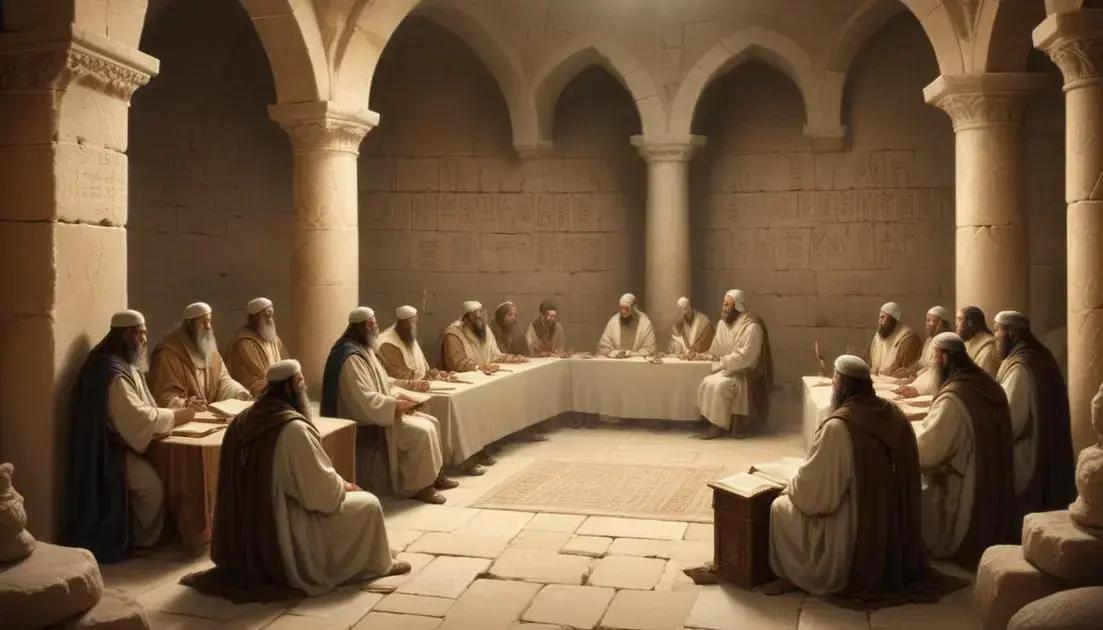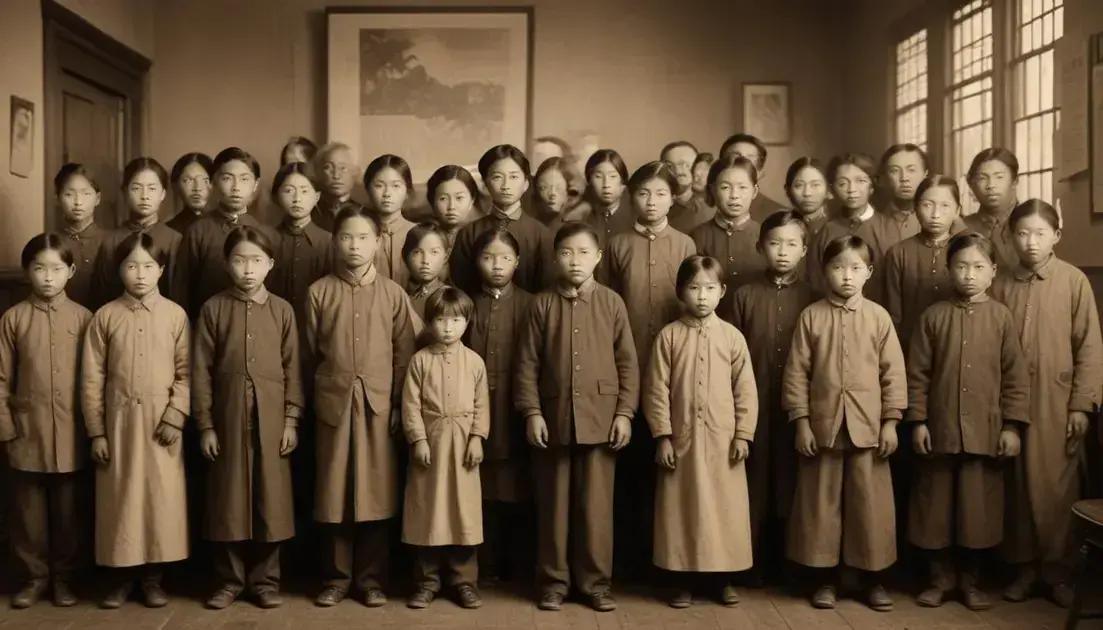
Council of Jerusalem: Gentile Christians and Jewish Law
The Council of Jerusalem was a pivotal event in early Christianity, deciding that Gentile converts didn’t need to fully adhere to Jewish law. This key decision allowed for a more inclusive approach, emphasizing faith in Jesus as the path to salvation. It fundamentally shaped the relationship between Jewish law and Christianity, paving the way for the growth of a diverse Christian community.
Council of Jerusalem was a pivotal moment that shaped the relationship between Gentile Christians and Jewish law. Are you curious about how this council influenced early Christian beliefs?
Background of the Council of Jerusalem
The Council of Jerusalem was a significant meeting in early Christianity. It happened around 50 AD. Many leaders gathered to discuss important issues about faith and practice. They wanted to decide how to welcome Gentiles into the Church.
Before this council, there was confusion about whether Gentile converts should follow Jewish laws. Some thought they needed to adopt all the rules of Judaism, including circumcision.
But others argued this was too strict. They believed faith in Jesus was enough for salvation. This point sparked a lively debate among the apostles, including Peter and Paul.
During the meeting, Peter spoke up. He shared his experience with Gentiles, showing that God accepted them without requiring them to follow the law fully. This was a turning point in understanding how to include Gentiles in the faith.
In the end, the council decided Gentiles did not have to follow all Jewish laws. Instead, they would follow a few essential rules, making it easier for them to join the faith. This decision opened the doors for the rapid growth of Christianity among non-Jews.
The Council of Jerusalem laid the groundwork for a more inclusive Church, which helped Christianity spread far beyond its Jewish roots.
Key Decisions Made
During the Council of Jerusalem, important decisions were made that shaped early Christianity. One of the biggest topics was the requirement for Gentiles to follow Jewish law.
Leaders debated whether they should follow all the rules or just a few. This was a big deal because Jewish law was very strict. Some thought new believers should follow all those rules to be accepted.
After much discussion, the council decided Gentiles wouldn’t need to be circumcised. Instead, they only had to follow a few basic rules. These included avoiding food offered to idols and not engaging in sexual immorality.
This decision was crucial. It meant that Gentiles could join the Church without the burden of heavy laws. It opened the door for many to accept the faith.
The council also supported the idea that faith in Jesus was the key for salvation. This brought unity among believers and helped spread Christianity beyond Jewish communities.
By making these key decisions, the Council of Jerusalem played a major role in how the early Church developed and grew.
Impact on Gentile Christians
The Council of Jerusalem had a huge impact on Gentile Christians. Before this council, many Gentiles felt unsure about joining the faith. They worried about following strict Jewish laws.
After the council, things changed. Gentile Christians were relieved to hear they didn’t have to adopt all Jewish practices, especially circumcision. This decision made it easier for them to join the Church.
With fewer hurdles, more Gentiles began to accept Christianity. They felt welcomed and valued in the community. This change helped spread the faith far beyond Jewish boundaries.
The council encouraged Gentile believers to focus on their faith in Jesus instead of old laws. This shift allowed them to grow spiritually without the pressure of heavy rules.
As a result, churches began to form in many Gentile areas. These new believers brought fresh perspectives and traditions into Christianity. This diversity enriched the faith and made it more relatable to different cultures.
The Council of Jerusalem truly changed the landscape for Gentile Christians. It showed them that they were an essential part of the growing Church.
Jewish Law and Christianity
The relationship between Jewish law and Christianity is complex. Early Christians were mostly Jewish and followed many customs. They valued the teachings of the Torah and other Jewish texts.
However, as the Church grew, questions arose. Many believed that new believers should not have to follow all Jewish laws. This debate highlighted the differences between Judaism and the emerging Christian faith.
During the Council of Jerusalem, leaders discussed these differences openly. They wanted to find a way to unite Gentiles and Jews within the faith. The decision was that Gentiles wouldn’t need to follow Jewish law fully.
This decision was crucial for the growth of Christianity. It helped people understand that faith in Jesus was the main focus. While Jewish law is still respected, it’s not the only path to salvation.
As a result, Christians began to form their own identity. They shifted their focus from the law to grace and faith. This shift made it easier for many Gentiles to feel welcome in the Church.
Today, Christians view Jewish law as part of their roots, but they embrace different teachings that focus on Jesus Christ.
Conclusion
In conclusion, the Council of Jerusalem played a vital role in shaping early Christianity. It helped establish important decisions regarding Jewish law and its relationship with Gentile Christians. By deciding that Gentiles didn’t have to fully follow Jewish laws, the council opened doors for many new believers.
This decision focused on faith in Jesus as the way to salvation. It also helped create a more welcoming environment for Gentiles, allowing Christianity to grow and expand beyond its Jewish roots. As a result, the early Church became a diverse community embracing both Jewish and Gentile followers.
Today, understanding this history helps us appreciate how far Christianity has come. It shows us the importance of inclusivity and acceptance within faith. The changes made during that council continue to resonate within the Christian community.


